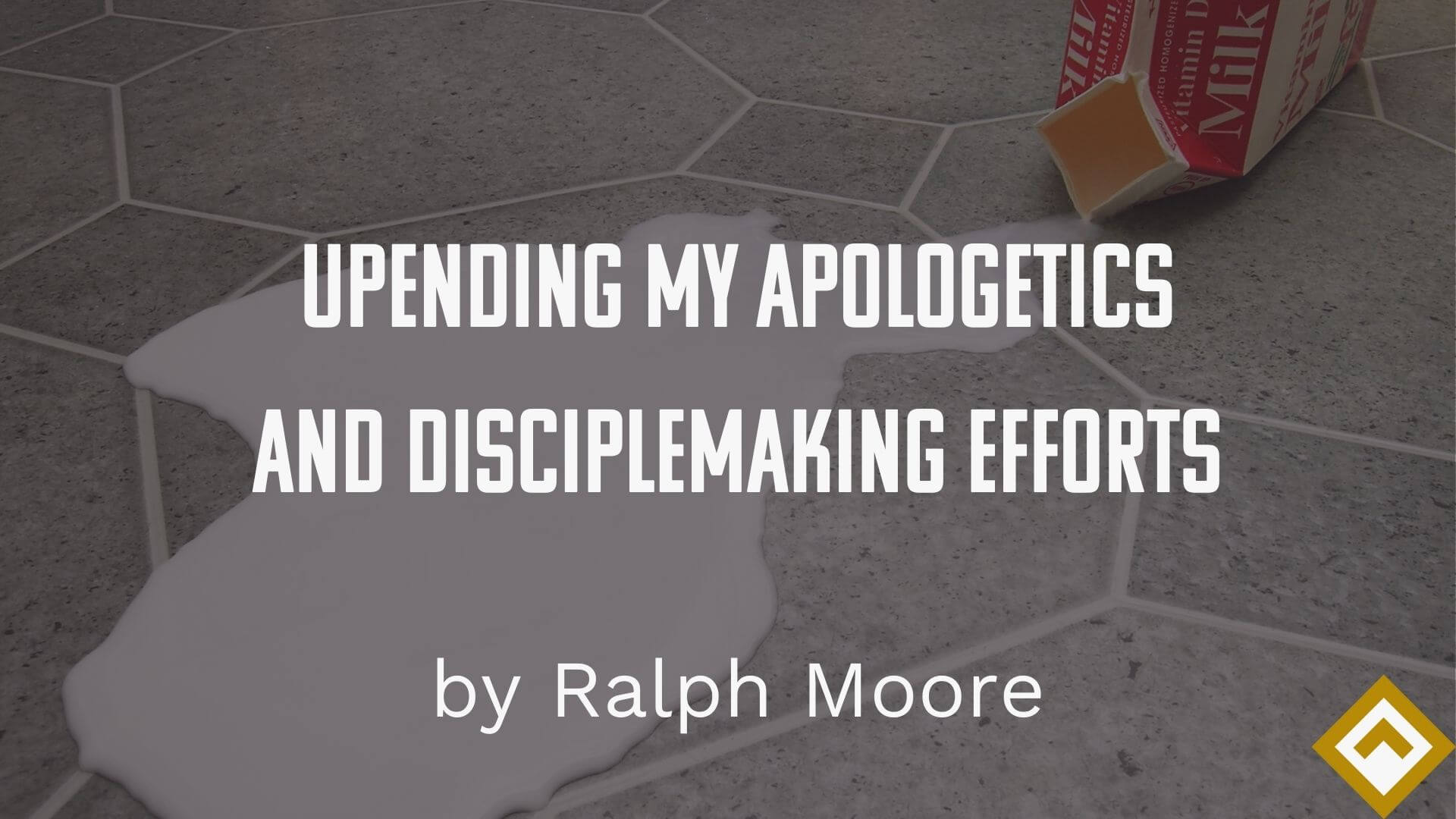
I recently had my apologetics turned upside down by a book that I read dealing with, of all things, near-death-experiences.
I’ve always written NDE off as a folklore or psychotic episodes – until my brother had one.
This was two years before he went to be with Jesus and after him lying in a coma for ten days. That night my friends along with Ruby and I gathered at the hospital to pray for him in intensive care. As we approached the ICU, we heard a “code blue” announcement, stepping aside as people came running to the unit.
After things calmed down, we were forbidden to enter as my brother was the one whose heart had stopped. The following day a doctor told my sister that we had less than 24 hours until they would pull the plug on my brother. Unfortunately, I couldn’t get to the hospital in time for the drastic event, I showed up three hours later to find my younger brother sitting in bed laughing talking and eating after the doctors had totally given up and disconnected the artificial breathing apparatus.
He shocked me by describing what me and my friends were wearing, where we were standing and the events that had taken place in the hall while we were waiting to see him. He also spoke of what the doctors had done during the emergency treatment.
He also portrayed the classic characteristics of NDEs when he said that he had seemed to be above the hospital room watching the medical personnel then floating above us in the hall by the elevator. He told of passing through a dark tunnel, seeing Jesus after seeing my parents and identifying one of my friends from the eighth grade who he never knew as a seven-year-old and who I never brought to our house. The experience reinvigorated his faith and he almost immediately led two people to Christ.
As a result of his experience, I began reading books about NDEs much to the chagrin of some of my friends who think it’s all poppycock and unbiblical. Those discussions with friends helped inspire me to write this blog. I recently read a book called Is Christianity Compatible with Deathbed and near-Death Experiences?: The Surprising Presence of Jesus, Scarcity of Anti-Christian Elements, And Compatibility with Historic Christian Teachings by J. Steve Miller.
Miller, an evangelical, teaches philosophy at Kennesaw State University in Georgia. He holds degrees from the University of Georgia, Columbia International University, Trinity Divinity School, Southwestern Studies and a PhD from Columbia International University.
He conducted an anonymous survey among hundreds of his students over several years, asking which arguments for God and the afterlife they found most compelling. The results were surprising. The arguments that resonate most deeply with him (and me), some students found completely unconvincing. And some of the arguments I would dismiss as weak were the most persuasive.
Intrigued, he later surveyed students after asking them to read his book Faith That’s Not Blind which presents fifteen arguments for the existence of God.
Participants rated each argument on a scale of zero to ten—zero meaning “not convincing at all,” ten meaning “completely convincing,” and five meaning they could go either way.
The results? “Miracles” topped the list, receiving the most votes as the “best” argument and the most votes for being “most compelling.” Interestingly, deathbed and near-death experiences—often seen as subcategories of miracles—also ranked high. Reading about this cluster of supernatural occurrences struck a chord in me because I’ve always taken a more rationalistic approach to apologetics (if I hadn’t been a pastor I would have become an engineer).
Those survey results make me wonder: Has the modern world, with its naturalistic and scientific mindset, made us hesitant to talk about miracles? Have we—especially in Western Christianity—grown uncomfortable with the idea that God still moves in ways that defy logic? So often, our apologetics focus on philosophy, logic, and historical evidence, while the arguments that actually persuade people are the ones we tend to leave out. This is of huge importance as those we disciple tend to become like us. In simple terms we may be neutralizing those people most connected to the world we hope to evangelize.
Here is a list of apologetic arguments from the book I mentioned above. At the top are the arguments that students of many different religions, including Muslims, Hindus and even Atheists found most persuasive. Toward the bottom are those least persuasive arguments that I studied and taught for so many years. I’m not ready to abandon my apologetics nor my approach to disciplemaking. I am however planning to lean into prayer and the supernatural is ways I’ve ignored.
- Near death experiences
- Deathbed experiences
- Miracles & answered prayer
- Special knowledge given by God
- Beginning of the universe
- Fine-tuned universe
- Order and laws in the universe
- The emergence of cells
- The existence of complex creatures
- The bible is a good fit for making life work better
- Human consciousness of self and free will
- Morality
- Direct apprehension of God
- Direct experience with God
- Many famous intelligent people have found the evidence for God and Christianity compelling
Ralph Moore is the Founding Pastor of three churches which grew into the Hope Chapel ‘movement’ now numbering more than 2,300 churches, worldwide. These are the offspring of the 70+ congregations launched from Ralph’s hands-on disciplemaking efforts.
He travels the globe, teaching church multiplication to pastors in startup movements. He’s authored several books, including Let Go Of the Ring: The Hope Chapel Story, Making Disciples, How to Multiply Your Church, Starting a New Church, and Defeating Anxiety.
The post Upending My Apologetics and Disciplemaking Efforts appeared first on Newbreed Training.